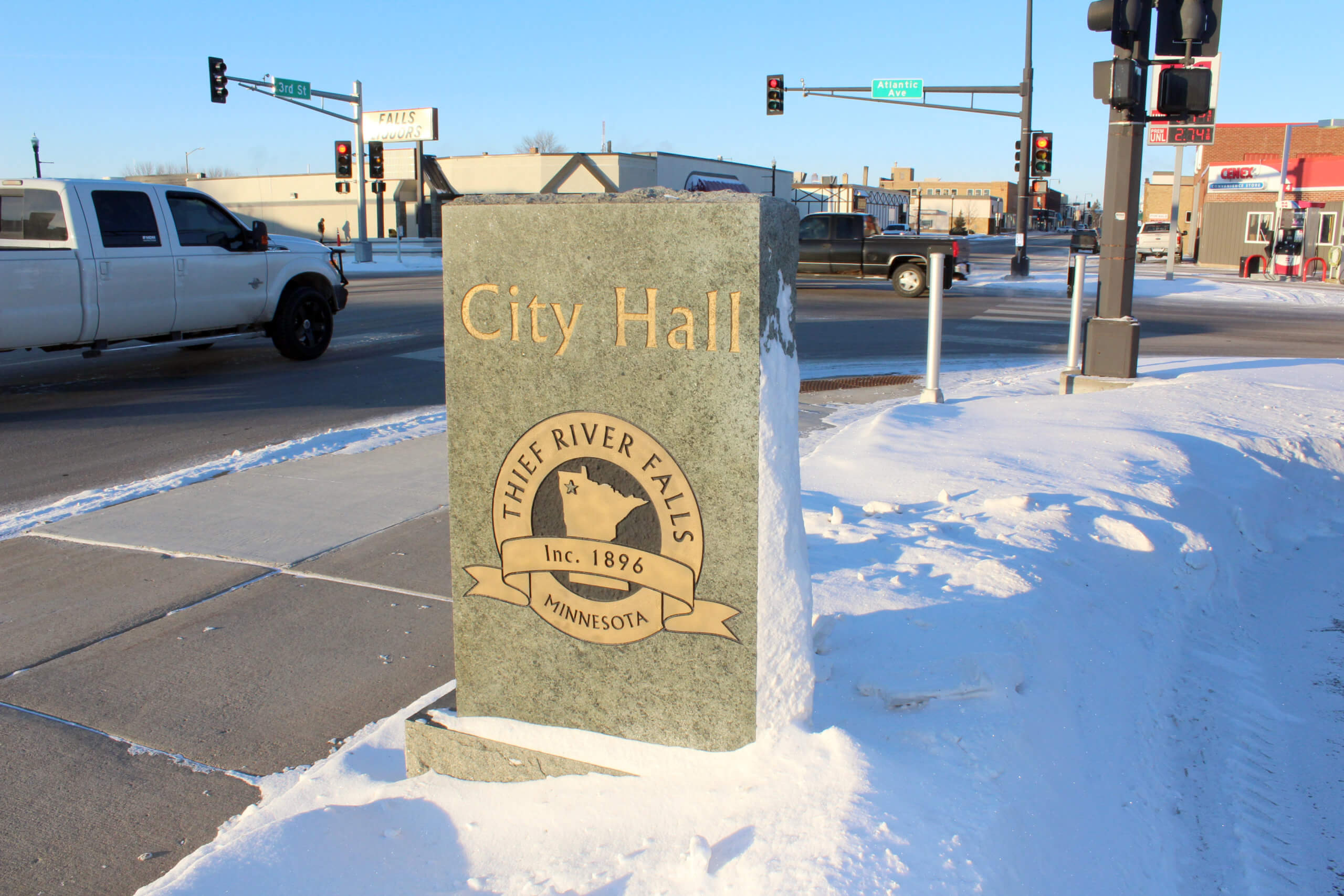by April Scheinoha
Reporter
Compromises were made during the 2022 budget process for the City of Thief River Falls.
“I am satisfied with what we came up with this year,” said Mayor Brian Holmer, who noted that no one got everything they wanted out of the 2022 budget.
At its meeting Tuesday, Dec. 21, the Thief River Falls City Council adopted the budget and the 2022 property tax levy.
The budget projects $36,704,443 in revenue from all funds and $36,421,474 of expenditures from all funds. It also projects a transfer of $282,969 to reserves.
Even though the council approved the 2022 budget, council member Rachel Prudhomme continued to voice her displeasure at paying Advance Thief River $25,000 to drive economic development in the area. Michelle Landsverk, executive director, has begun providing monthly reports to the council. “It’s nothing new,” Prudhomme said about Landsverk’s December report. She added that a large portion of Landsverk’s cited work referred to programming by Christine Anderson at the Small Business Development Center in Crookston. Anderson’s work is free to the city.
Furthermore, Prudhomme said she was angry city taxpayers were paying such a high amount to Advance Thief River. In particular, she noted that city taxpayers are paying twice since both the city and county are contributing money to Advance Thief River.
Pennington County contributes $25,000 to Advance Thief River. Advance Thief River contributes another $25,000.
Prudhomme suggested that the council should instead contribute funding to the Thief River Falls Chamber of Commerce, Visit Thief River Falls and the SBDC, which are promoting Thief River Falls for free.
Council member Steve Narverud, who serves as an ex-officio member of the Advance Thief River Board, said most of Anderson’s work in Thief River Falls is the result of Advance Thief River seeking her help. He said the SBDC only employs three people for the entire northwest region of Minnesota.
Prudhomme asked why the city is paying Advance Thief River if the SBDC is doing the work.
Narverud replied that part of what Advance Thief River does is find what needs to be done and who can help accomplish that goal. He invited his fellow council members to come to a meeting.
Holmer has also voiced concerns with paying $25,000 to Advance Thief River. Holmer, who owns Michael’s Meats in downtown Thief River Falls, said the Chamber provides a lot of help to downtown businesses. He asked whether the council should start providing funding to the Chamber to keep an executive director on staff. Holmer added that the council needs to look at what it pays and receives for such payment. Like Prudhomme, he also voiced how city residents are paying more than their fair share for Advance Thief River since they are residents of both the city and county.
In a separate motion, the council set the property tax levy at $2,959,824, a 5.86% increase over 2021. That amount includes a General Fund levy of $2,134,624 and a bonded debt levy of $825,200.
City taxes will increase $1.83 on a $100,000 home. For a $200,000 commercial property, city taxes would increase $8.28. Those increases don’t take into account a change in the estimated market value of a particular property.
In September, the council approved a higher preliminary property tax levy that would have amounted to a 7.59% increase. Two months later, council members recommended lowering the increase to 5.86%.
Council member Curt Howe thought the city did a good job with its budget process. He noted that Detroit Lakes’ property tax levy increased by more than 10%.
City Council approved the 2021 Management, Administrative, Professional and Supervisory Employee contract. As part of the resolution, the council also approved revisions to the agreements with City Administrator Angie Philipp and Human Resources Specialist LeAnn Engelstad.
Those city employees will receive a 1.75% raise retroactive to Jan. 1, 2021. The current MAPS contract expired Dec. 31, 2020, and the Ad-Hoc Labor Committee has been negotiating with representatives of MAPS over the past year. Wage increases for the city administrator and human resources specialist have generally followed the MAPS contract for many years.
The council approved tax abatements for 21 properties, totalling $15,091.71.
Those receiving property tax abatements included Lester John Larson, Adrian Prestebak, Bryce Gillie, Lori Alvarado, Shelby Erickson, Donita Stepan, Kellie Dagg, Tanner Nessen, Brandi Dorge, Mackenzie Swick, Jeremiah Nichols, Diana Donarski, Tanner Dicken, Wendall Wegge, Marcia Sandahl, Jamie Englund, Suresh Sreedharan, Steven Keogh, Christina Pribyl, Duane and Wendy Horras, and Margaret Kaste. Six of the respective properties are in their first year of the program, and nine of the respective properties are in the second year while three properties each are in the third and fourth years of the program.
Under the program, city tax abatements are available for new single-family homes. Excluding lot value, home construction cannot exceed $160,000 for homes built before June 2015 and $200,000 for homes built after that date. Taxes are abated for three years unless there are assessments, then it is seven years.
Pennington County abates county taxes as part of this program. The school district only abates school district taxes for new single-family homes in the Midwest Minnesota Community Development Corporation’s Greenwood Neighborhood Addition.

